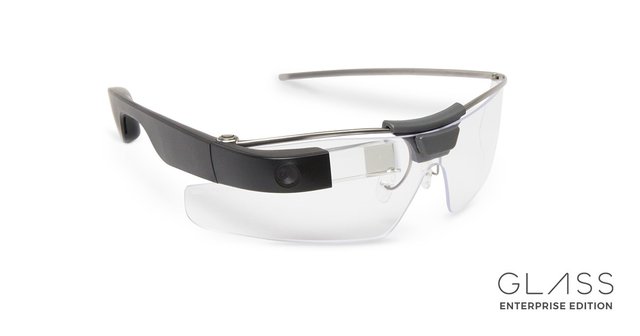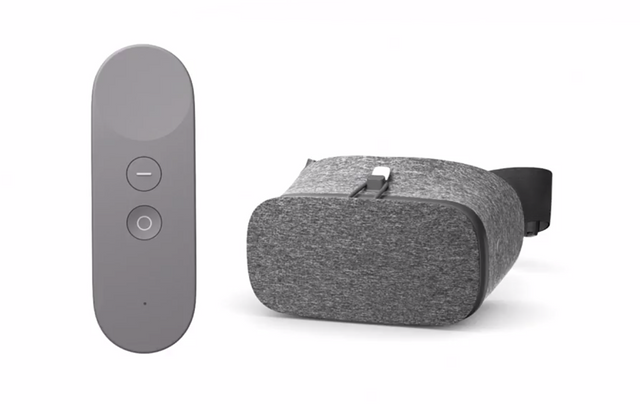Google Glass is back, with an enterprise focus(and my thoughts on it)

About the new Google Glass
Google's X division just recently posted a blog announcing that 2 years after cancellation, Google Glass is back, this time with an enterprise focus. The blog post also mentioned that Google Glass is already being used by companies like GE, Boeing and Volkswagen by their maintenance and assembly staff. It is also used for training new employees,and also used in the medical industry. The blog post also mentioned that while consumer sales were halted in 2015, Google has continued to develop it for enterprise needs, and the new Glass Enterprise Edition is the result of that.
My thoughts on it
So, this is the second AR product(the first one being the MSFT hololens) that is being developed not for the consumer market, but for enterprise use. I think this definitively tells us that VR/AR headset type products have not yet decreased in price enough for them to be interesting to the average consumer, which is why these companies are going for the enterprise market. Even in the VR space, while the gaming enthusiast is willing to shell out significantly more money for gear compared to the average consumer; even there, interest has cooled down considerably compared to a year ago(or even a few months ago). On the other hand, a lot of companies are selling significantly cheaper, and lower quality products (like the Gear VR).
I think the following things need to happen, for VR/AR to be a Big Thing:

Google's Daydream View (Source: Ars Technica)
1. Cheaper headsets must become significantly better
I think these expensive products, like the Google Glass/Hololens(for AR) and Oculus Rift/HTC Vive, are the Macbook Airs of the VR/AR market. I don't think they will ever become any cheaper. Especially the latter 2, those need a pretty powerful PC to play, and people who are willing to pay more for a high-end PC are probably willing to pay for a fancy VR headset.
...Which means that things like the Gear VR, Google's Daydream View headset, and other such headsets must become significantly better. This will organically happen as phones become faster, but that also must be supplemented by great APIs for creating content, so they can entice customers.
2. More content must be generated that is tailored for these devices
I think this is an issue that most of these companies have caught on to. I think that while there is a lot of content being generated for PC-connected VR headsets, other types of headsets don't really have a lot of content being generated for them.
For Mobile based VR headsets, while new content is being generated, it isn't happening at really the same pace as for PC- based headsets. Also, phones don't have a lot of processing power, so anybody who has tried PC-based VR probably isn't very impressed with content that is made for the Gear VR or the Daydream.
AR headsets, perhaps, suffer from this problem the most. Being enterprise focused, they don't really have easy-to-use APIs or SDKs with good documentation that are crucial for new content creation.
3. NEW TYPES OF CONTENT must be created for these devices
THIS, is the biggest, the most important thing that needs to happen, for AR/VR to be a big thing. I think the big mistake a lot of these companies are making, is that they are taking existing experiences, and putting a "VR" sticker on it and hoping that the market will sell.
"Theater experience in VR" or "Enjoy movies in VR" isn't going to get people to buy headsets.
I think we have to look back at how selfies developed to get proof of this. When people first took selfies, nobody cared about front-facing cameras on phones. But as selfies became the new trend, as CEOs and heads of states started doing it, phone manufacturers started paying more attention to front-facing cameras.
It isn't always the hardware that leads to third-party content. Sometimes, hardware is developed as a reaction to the content.
Someone,somewhere, is going to come up with a new way of recording videos, or of making music, that is tailor-made for VR/AR headsets. Someone, somewhere, is going to develop a game mechanic that will work exclusively on VR devices.
THAT'S what needs to happen to make people buy these devices in big numbers.
So in conclusion, i think the hardware needs to become much faster, it needs to become significantly easier to create content, which in turn will, hopefully, lead to entirely new types of content tailor-made for these devices, which will increase adoption.
Sources:
Google's blog post: https://blog.x.company/a-new-chapter-for-glass-c7875d40bf24
Engadget article: https://www.engadget.com/2017/07/18/google-glass-is-officially-back-with-a-clearer-vision/
If you liked this post, please don't forget to upvote and resteem it, and follow me for more content like this :-)
Nice article. I am really looking forward to the benefits of AR for making tasks easier such as driving or even learning to program, etc. I mean, the possibilities are almost endless. It is the next step in our path to transhumanism. I have mixed feelings about the topic but look forward to the possible benefits.
Nice post followed :)
Thanks for reading!
@harshallele
Good Post!
Thanks for sharing.
Thanks for reading :-)